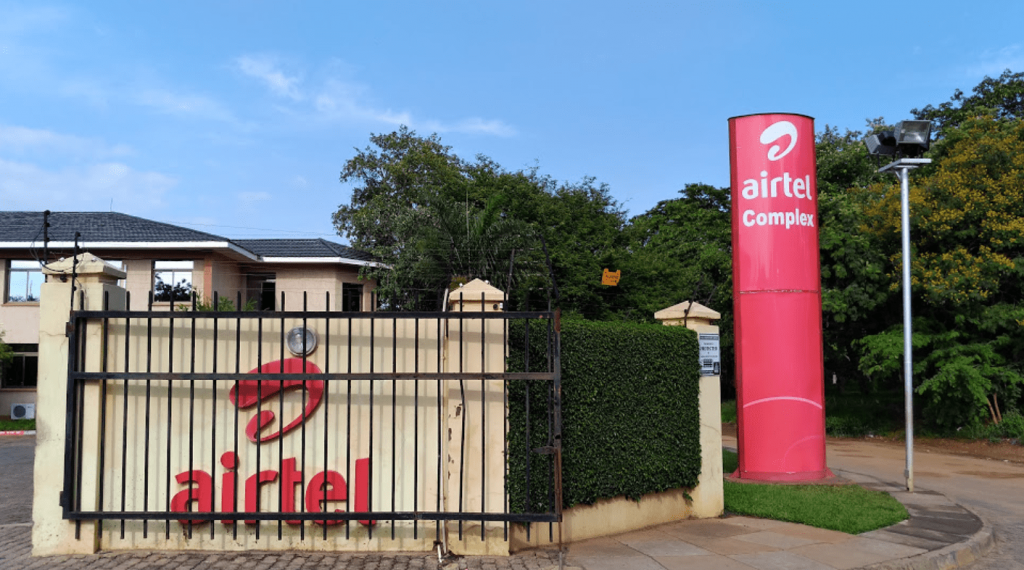Shareholders lose case against Airtel
Two minority shareholders who wanted Airtel Malawi delisted from the Malawi Stock Exchange (MSE) and pay damages to them have lost their case after they wrongly commenced their case in the High Court’s Commercial Division.
The two shareholders, Frank Harawa and Chandrakant Makadia, commenced their case through summons in Blantyre instead of a petition as the law requires in cases involving companies and their shareholders.

In dismissing their case Monday, Justice Masauko Msungama observed the court did not have at any time jurisdiction to preside over the wrongly initiated proceedings, commenced through summons.
Harawa and Makadia have an option to commence a properly initiated fresh action according to the court, but their lawyer Burton Mhango in an interview Friday said he was yet to get instructions from his clients.
The two, who became shareholders when Airtel went public on an initial public offering, accused the company of concealing or failing to disclose that there was a significant pending litigation against it at the time it was going public.
They further accused Airtel of fraudulently misrepresenting its financial status and that it involved itself in unlawful and unfair trade practices and deceived them as minority shareholders.
Harawa and Makadia asked the court to declare that the directors of Airtel failed to disclose all information and, therefore, breached their fiduciary duties towards Airtel and other stakeholders.
The two wanted an order that Airtel’s prospectus for its initial public offering dated December 20 2019 be declared defective for failure to meet prescribed legal requirements.
“[We also want] an order that the 1st defendant (Airtel) be delisted from the stock market…that the directors cease to be directors for failure in their duty and loss of trust and confidence.
“An order that the defendants pay damages for deception, misrepresentation and breach of statutory and fiduciary duty…an order that the defendants pay penalties prescribed by law [and] and order that any liabilities arising from the pending litigation be borne by the directors and previous directors and should not affect the current shareholders,” Harawa and Makadia demanded.
Directors sued alongside Airtel were Plastone Alex Chitsime, Charles Mustafa Kamoto, Alok Bafna, Ian Ferrao, Neelesh Pratap Singh and Kayisi M’bwana Sadala.
But becoming aware that the action had been irregularly commenced, the claimants made an application to the court to regularise the action, but the defendants, through their lawyers Raphael Mhone, Davis Njobvu and Noel Misanjo, challenged the regularisation of the action.
They asked the court to dismiss the case in its entirety for being irregularly commenced.
The defendants argued that the rule under which shareholders actions should be brought is mandatory in nature and it provides for all actions with no exceptions.
They argued the breach committed by the claimants was something that could not have been remedied; adding Civil Procedure Rules (CPR) 2017 would not show any provision which permits the court to permit an action begun by summons under the CPR to continue by way of a petition under the Companies (Shareholder Action) Rules.
The defendants, if the case was proceeding, were ready,as per the court record, to contend that the claimants were deprived of the opportunity to make proper investment decisions or assessment.
The defendants argued the claimants knew of the Tax Case as they were present in court before they subscribed for their shares in the initial public offering and that the claimants did not subscribe for the shares based on the prospectus’ lack of disclosure of the tax case.
The defence lawyers argued that the share price of the company having gone up from K12 to K51 showed the correctness of profit forecasts, adding the claimants were not entitled to any exemplary damages or loss of profits as they did not suffer any such loss.
In his ruling, Msungama wondered how a matter that was commenced by way of summons and went all the way to a scheduling conference stage could be converted to a matter that would be deemed to have commenced by petition.
“The initiating process and all subsequent steps taken were irrelevant and of no legal significance. The court and the parties were actually embarking on a futile adventure that has no legality whatsoever,” the judge said.
Msungama said the approach advocated by the claimants to convert the summons to a petition was to open floodgates and send a wrong signal that parties could commence legal actions in courts without regard to procedure on the basis that wrongly commenced actions would be readily regularised by the court.
He dismissed the case and ordered the claimants to pay 75 percent of the party and party costs.
Ironically, Harawa and Makadia, as minority shareholders of Illovo Sugar (Malawi) pcl, also lost a case in June 2021 against the sugar company when they also teamed up and wanted the court to make declarations that Illovo failed to disclose information to them.
The two had also wanted Illovo to pay them exemplary aggravated damages for oppression and unfair prejudice to minority shareholders, which include failure to disclose in annual accounts commission, payment of fees and charges to undisclosed related parties.
The case was also dismissed by Justice Charlotte Mesikano Malonda of Commercial Division for irregular commencement.





